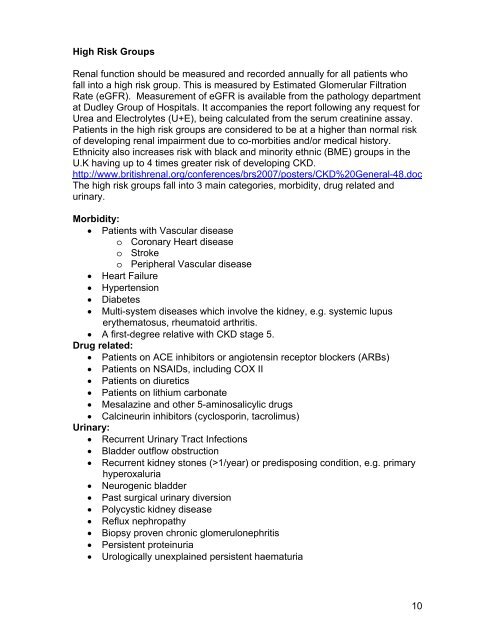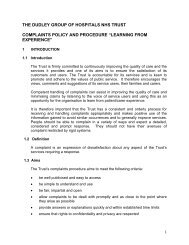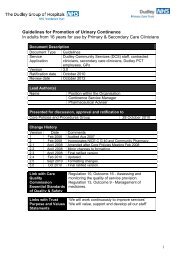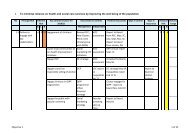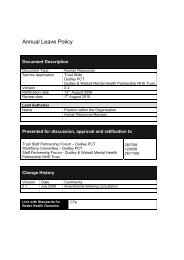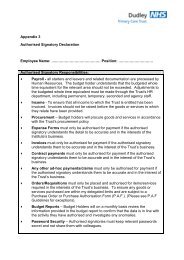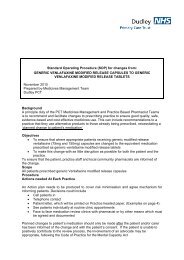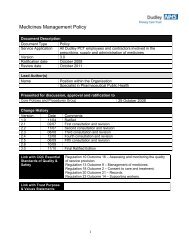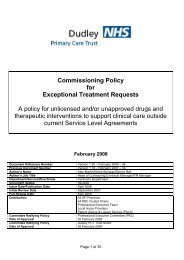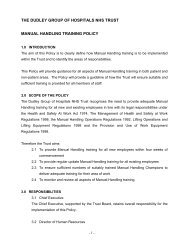Chronic Kidney Disease Pathway Document Description Presented ...
Chronic Kidney Disease Pathway Document Description Presented ...
Chronic Kidney Disease Pathway Document Description Presented ...
You also want an ePaper? Increase the reach of your titles
YUMPU automatically turns print PDFs into web optimized ePapers that Google loves.
High Risk Groups<br />
Renal function should be measured and recorded annually for all patients who<br />
fall into a high risk group. This is measured by Estimated Glomerular Filtration<br />
Rate (eGFR). Measurement of eGFR is available from the pathology department<br />
at Dudley Group of Hospitals. It accompanies the report following any request for<br />
Urea and Electrolytes (U+E), being calculated from the serum creatinine assay.<br />
Patients in the high risk groups are considered to be at a higher than normal risk<br />
of developing renal impairment due to co-morbities and/or medical history.<br />
Ethnicity also increases risk with black and minority ethnic (BME) groups in the<br />
U.K having up to 4 times greater risk of developing CKD.<br />
http://www.britishrenal.org/conferences/brs2007/posters/CKD%20General-48.doc<br />
The high risk groups fall into 3 main categories, morbidity, drug related and<br />
urinary.<br />
Morbidity:<br />
• Patients with Vascular disease<br />
o Coronary Heart disease<br />
o Stroke<br />
o Peripheral Vascular disease<br />
• Heart Failure<br />
• Hypertension<br />
• Diabetes<br />
• Multi-system diseases which involve the kidney, e.g. systemic lupus<br />
erythematosus, rheumatoid arthritis.<br />
• A first-degree relative with CKD stage 5.<br />
Drug related:<br />
• Patients on ACE inhibitors or angiotensin receptor blockers (ARBs)<br />
• Patients on NSAIDs, including COX II<br />
• Patients on diuretics<br />
• Patients on lithium carbonate<br />
• Mesalazine and other 5-aminosalicylic drugs<br />
• Calcineurin inhibitors (cyclosporin, tacrolimus)<br />
Urinary:<br />
• Recurrent Urinary Tract Infections<br />
• Bladder outflow obstruction<br />
• Recurrent kidney stones (>1/year) or predisposing condition, e.g. primary<br />
hyperoxaluria<br />
• Neurogenic bladder<br />
• Past surgical urinary diversion<br />
• Polycystic kidney disease<br />
• Reflux nephropathy<br />
• Biopsy proven chronic glomerulonephritis<br />
• Persistent proteinuria<br />
• Urologically unexplained persistent haematuria<br />
10


